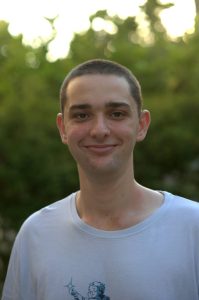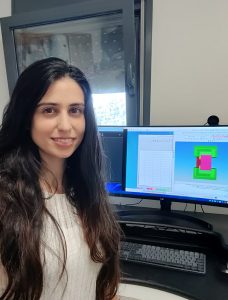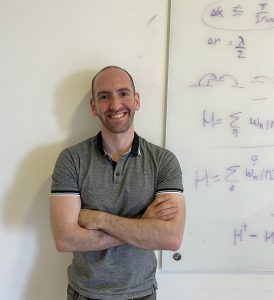Technion Trio Shines
Undergraduate and Doctoral Stars at Lindau Nobel Laureate Meetings
One undergraduate student and two doctoral students from the Andrew and Erna Viterbi Faculty of Electrical and Computer Engineering have been selected to attend the 73rd Lindau Nobel Laureate Meetings, where young scientists meet with Nobel laureates. Some 650 young scientists from around the world will participate in this year’s meetings, which will take place this week.
Nevo Werner-Reiss is a fourth-year undergraduate student in the double-major track of Electrical Engineering and Physics at the faculty, and is a member of the Technion Excellence Program.
Exceptionally for an undergraduate student, Nevo was an active member of Prof. Shahar Kvatinsky’s lab which he initially joined toward the end of his first year in the Excellence Program for a summer project. There Nevo worked on adapting and evaluating algorithms and hardware designs for In Memory Binary Neural Network inference accelerators. During his third academic year, Nevo presented his research and won the “Best Student Poster” Award at ATTO9 – The 9th International Conference on Attosecond Science and Technology that was held in Jeju, South Korea.
In his poster, Nevo showcased his research project: “Towards Quantum Tomography of Attosecond Pulse by FROG-CRAB” where he explored the effect of photon statistics on FROG-CRAB. His research was supervised by Matan Even Tzur and Prof. Oren Cohen. Nevo is continuing his studies as a graduate student at Prof. Yuval Shagam‘s Molecular Quantum Technology Lab.
Sapir Biton completed her undergraduate and master’s degrees at the faculty and is currently an Ariane de Rothschild Fellowship, which is given to outstanding doctoral students by the Edmond de Rothschild Foundations. Under the supervision of Prof. Nir Tessler, Biton’s doctoral research focuses on devices in the fields of optoelectronics and microelectronics based on electrochemical processes.
According to Prof. Tessler, “Electrochemical transistors and memories are likely to be part of the next stage of the microelectronics industry, and I am very pleased that Sapir has taken us in this direction. The fact that researchers worldwide are changing the structure of their devices following Sapir’s insights is direct evidence of her excellence.”
In an article published in 2023, the two presented a model describing the instability mechanism in perovskites – cells that are expected to be integrated into silicon solar cells and later also into lightweight and semi-transparent cells for various other applications. The findings are expected to accelerate the use of perovskites and improve the production of green energy.
Michael Birk completed a double major in physics and electrical engineering as part of the “Pinnacle” Future Scientists program, and he is currently a doctoral student under the joint supervision of Prof. Ido Kaminer (AdQuanta) from the Viterbi Faculty of Electrical and Computer Engineering, and Prof. Oren Cohen from the Faculty of Physics. In his doctoral research, Birk focuses on the theory and application of quantum optics.
According to Prof. Kaminer, “Michael’s contribution was crucial to our publications in Nature Physics and Nature Photonics last year, where he was one of the lead authors. Together, the two articles laid the foundation for a new research field – strong-field quantum optics – which has already begun to engage researchers worldwide. In a third article published in the Journal of Optics, Michael led the Technion’s contribution to an international collaboration of researchers, demonstrating impressive leadership and collaboration skills.”





